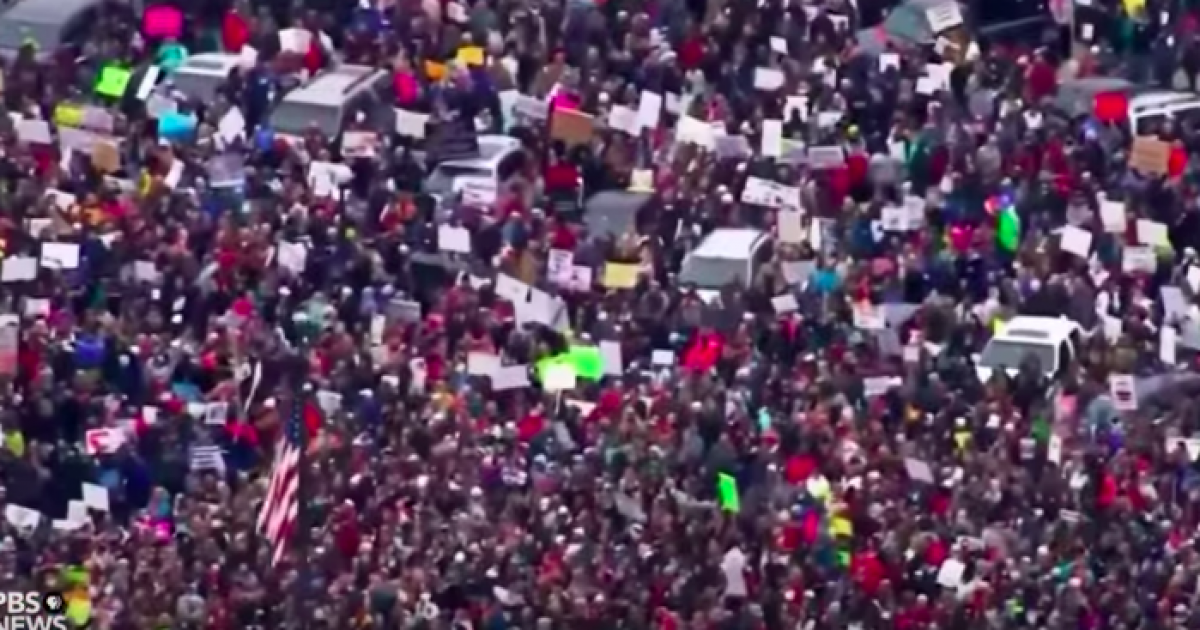
Right-to-work states could play a key role in keeping President Trump in office in 2020.
A study from the National Bureau of Economic Research (NBER) found that Democratic voter turnout is considerably lower in states with right-to-work laws due to financially-crippled unions, which have traditionally been strong supporters of Democratic campaigns.
Data from the Cooperative Congressional Election Study also found that in 2016 unions played a substantial role in electing Trump.
Nate Silver of FiveThirtyEight highlighted this:
In fact, the shift among union voters was enough to swing the election to Trump. According to the CCES, Obama won union voters by 34.4 percentage points in 2012, but Clinton did so by only 16.7 points in 2016. That roughly 18-point swing was worth a net of 1.2 percentage points for Trump in Pennsylvania, 1.1 points in Wisconsin and 1.7 points in Michigan based on their rates of union membership1 — and those totals were larger than his margins of victory in those states.
A story in the Wall Street Journal, which featured union members in Rust Belt states like Indiana, Illinois, Ohio, Pennsylvania and Wisconsin, reported that even though many of these union members had usually voted Democrat for most of their lives, they ended up pulling the lever for Trump in 2016.
The recent Janus v. AFSCME decision now puts traditionally pro-Democrat unions in an uncomfortable position for 2020.
According to labor experts and political pundits,swing states and states with large working-classes cast their ballots for Trump because he listened to their grievances and spoke their language. Trump promised to help revitalize rural communities negatively affected by globalization which disproportionately benefited the East and West Coasts.
Thomas Kochan, the co-director of the MIT Sloan Institute for Work and Employment Research, argues that the Democratic nominee must listen to and respect the concerns of blue-collar workers if he or she wants to win the presidency.
“One of the primary reasons [Trump won] is the Clinton campaign took too many of those voters for granted,” Kochan told InsideSources. “In states like Wisconsin and Michigan in particular. It was clear that a lot of people in those states felt disrespected and abandoned by the Democratic Party. And that mistake is not going to be made again — you’re going to see whoever is the Democratic candidate canvassing in those states and listening to the people. I suspect there will be a concentrated effort not to make the same mistake. Whether that’s enough to win back those voters remains to be seen.”
Kochan agreed with the NBER study’s findings, claiming that unions definitely don’t have the same political clout like they used to because of the growing right-to-work movement. This legislation makes mandatory union dues no longer a condition of employment, thus depriving unions of an easy source of coerced money.
“That will play a role in 2020 politics, no question,” Kochan commented, “but there’s a lot of recognition within the labor groups that new steps need to be taken to address this, and we see this all over the country. So I think there will be much more discussion of labor and political issues in the 2020 election and elevate the voter sensitivity around these issues.”
Put simply, blue-collar and working-class votes will play a crucial role in the 2020 elections.
Due to private-sector unions’ declining influence, new labor rights groups are filling in the void, like Fight for 15 and Working America.
“The most successful has been the Fight for 15, [which is] supported by and funded by labor unions, but it is also a grassroots effort with a lot of community groups, immigrant groups, community centers,” Kochan observed. “We also see immigrant groups getting immigrants registered to vote. You see African-American groups becoming more active in getting their constituents registered and activated to overcome what happened in some key states like Wisconsin when minorities voted less frequently than they had in the past. [Working America] is accelerating their efforts to canvas people on issues.”
However, Democratic presidential candidates blind focus on identity politics may hurt them with workers. There are indicators that a substantial number of union members in industrial sectors plan on voting for Trump again.
“It is clear that many working families are very frustrated and don’t think either party has paid attention to their concerns, so whoever can produce a more trusted set of ideas and candidates will get their support, but that will be up for grabs,” Kochan concluded.



